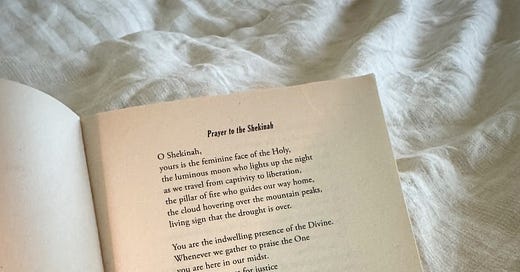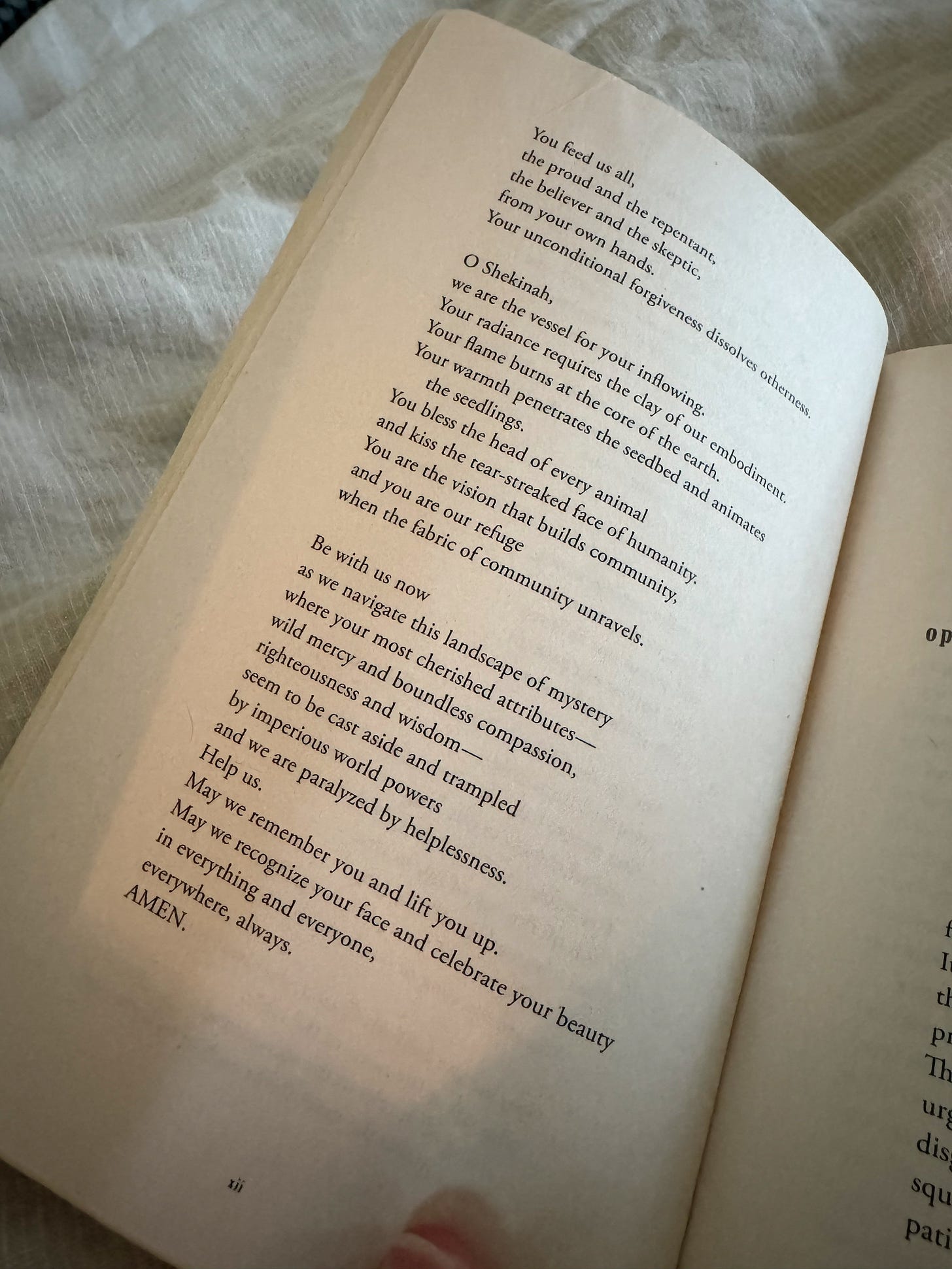I first learned about the Shekinah when I read Mirabai Starr’s book on feminine mysticism, Wild Mercy. Mirabai is one of my most resonant living luminaries. Her work speaks straight to my own heart and my path of interspiritual devotion and contemplative practice. I find her books to be close companions and her teachings an anchor for my own grounding. She has beautifully translated ancient sacred texts and used her own personal grief as a healing portal and reverence for God. Modern and traditional mystics that believe the Divine is alive and gracious in all things, are such a salve for the wounded triggers I carry from the dogmatic, punitive religious narrative that I grew up with.
Admittedly, Judaism is the faith I know the least about. It has been beautifully revealed to me from close and dear friends, a rabbi who became a soul sister, Rabbi Tova, as well as Mirabai and other modern Jewish teachers. In the heart of Jewish tradition, the Shekinah is the sacred breath of presence — the radiant glow of God dwelling among humankind. She is often envisioned as the feminine face of the Divine, a gentle whisper of compassion, a warm light of nurture.
In the depths of Kabbalah, Jewish Mysticism, the Shekinah is the indwelling light — a sacred reflection of grace and glory. She is the nearness of the Infinite, a presence that rests gently, glowing within the world. The Shekhinah is often associated with attributes like love, compassion, and the vitality of creation.
In Christian thought, the Shekinah is sometimes understood as the Holy Spirit — the breath of God that moves among us, guiding, comforting, dwelling within the soul.
Learning about The Shekinah invoked such a unified renewal within my soul. Now, candlelight brings me to my knees weeping as an offering to the Shekinah. I have loved connecting Friday night Shabbat with a candlelight ritual to the Shekinah through a devotional mantra or prayer.
Across traditions, the Shekinah is a sacred presence — both immanent and beyond, tender and strong, feminine and masculine. She invites us to remember that the Divine is not only above but also beside us, within us, and around us — a living presence in every moment. How awesome is that.
Below is the beautiful audio of Mirabai reading her Prayer to the Shekinah from Wild Mercy. And below that is the Divine mantra that came through for us for this week’s companion and anchoring.
Keep reading with a 7-day free trial
Subscribe to The Riverbank by Paige Appel to keep reading this post and get 7 days of free access to the full post archives.





